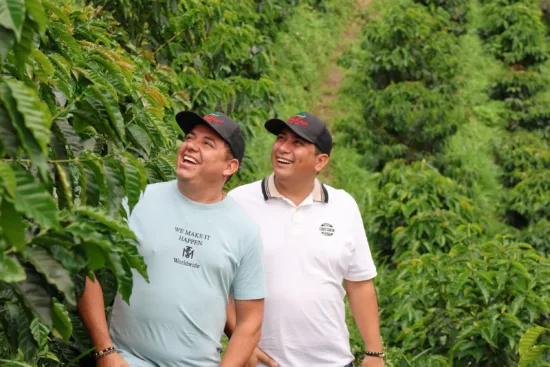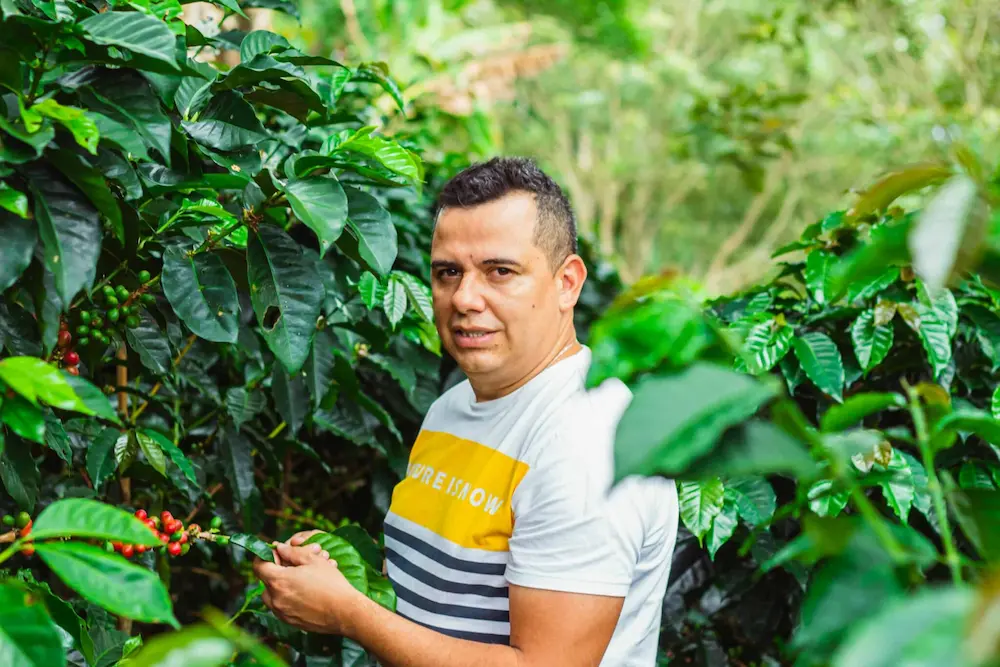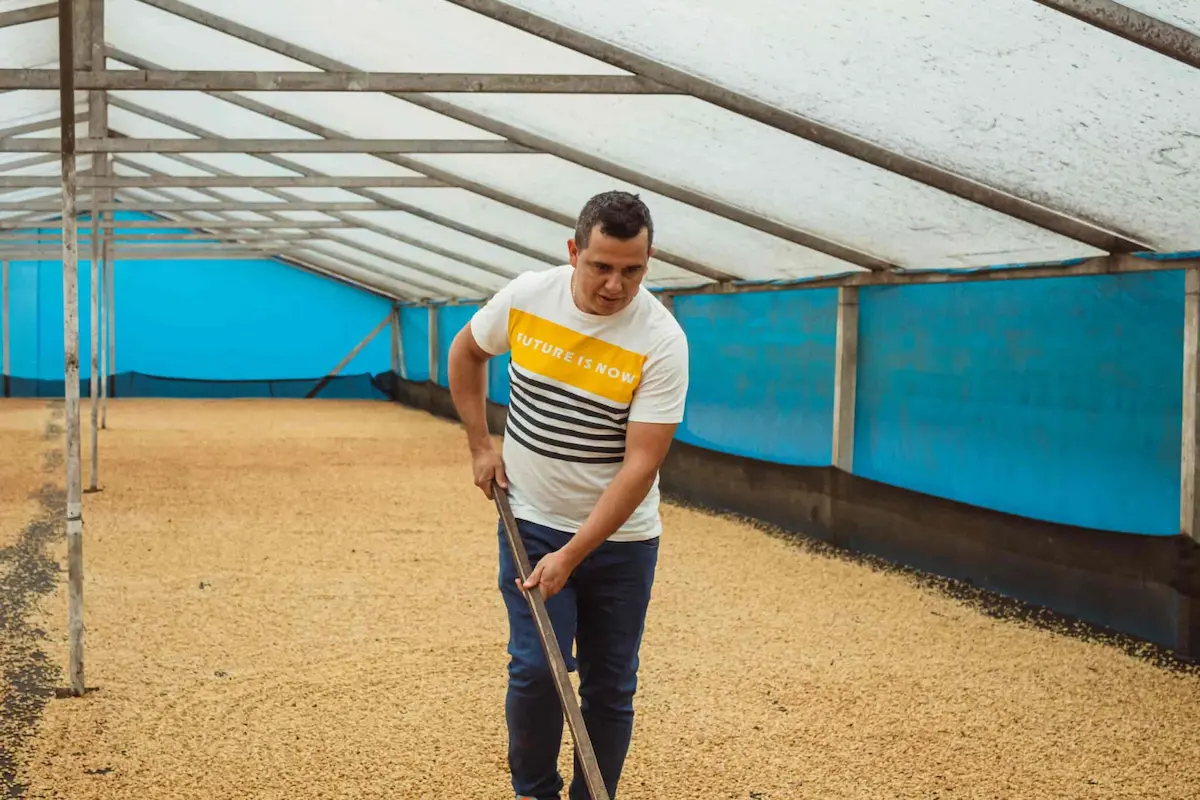
COLOMBIA - ORANGE BOURBON
FINCA EL MIRADOR

FARM: Finca El Mirador
VARIETAL: Orange Bourbon
PROCESSING: Carbonic Maceration
ALTITUDE: 1,550 meters above sea level
PRODUCER: Elkin Guzman
REGION: Huila, Palestina
TASTING NOTES: Blackcurrant, Ripe Mandarine, Prune

ABOUT THIS COFFEE
Elkin Guzman cultivates coffee on 31 hectares at Finca El Mirador in Palestina, Huila. Huila’s high altitudes and fertile soils provide excellent growing conditions for cultivating specialty coffee.
In order to further differentiate his coffees, Elkin has been
experimenting with innovative processing methods, such as the Carbonic Maceration used in this lot.
CULTIVATION
Elkin’s farm is 31 hectares in size. The farm has nutrient-rich soil that’s sandy loam and clay loam with a good reserve of humus and organic matter. As a result, the coffee trees a well-fed with great
nutrition.
Coffee is grown under a semi-shade system that helps with temperature regulation and optimizes photosynthesis.
Orange Bourbon is a Bourbon variety where the cherry is orange in color. Bourbon is a specialty coffee darling known for its excellent cup quality and good performance at high altitudes. The variety
is susceptible to major diseases, which can make it difficult to grow. The variety traces its heritage back to Yemen. French missionaries introduced Bourbon from Yemen to Bourbon Island (now known as La Reunion) in the early 1700s, from which it takes its name. Bourbon has had a huge effect on modern coffee varieties as one of the major ascensions for many varieties grown across the world.

HARVEST & POST-HARVEST
Cherry is selectively handpicked and only cherry of the perfect ripeness is used for the Carbonic Maceration process. The average Brix degree for cherry used for this processing is 20 to 24. Elkin provides periodic training for workers to ensure they’re selecting the best cherry for processing.
Once picked, the cherry is hand sorted, floated to remove underripes and then placed in plastic drums to ferment. Cherry ferments for 60 to 96 hours.
Then, the cherry is pulped and the coffee and mucilage is deposited back in the drums. They seal the drums to create an anaerobic environment where microorganisms metabolize the sugars in the mucilage and release CO2. Coffee ferments in a CO2-rich environment for 80 to 120 hours.
Following fermentation, coffee is washed in clean water and laid to sun dry. Parchment is raked frequently to ensure even drying. It takes approximately 18 to 25 days for parchment to dry.

COFFEE IN COLOMBIA
Colombia has been producing and exporting coffee renowned for its full body, bright acidity, and rich aftertaste, since the early 19th century.
Colombia boasts a wide range of climates and geographic conditions that, in turn, produce their own unique flavors in coffee. This also means that harvest times can vary quite a bit. In fact, between all its different regions, Colombia produces fresh crops nearly all year round.
The increasing focus on the specialty industry is changing the way traders and farmers do business. It is becoming more common for farmers to isolate the highest quality beans in their lots to market separately. These higher-quality lots are often sold under specific brands or stories.
Besides its wide variety of cup profiles, Colombia has quickly expanded its certification options over the past 10 years. The most common certifications available are Fairtrade, Rainforest Alliance, UTZ and Organic.











